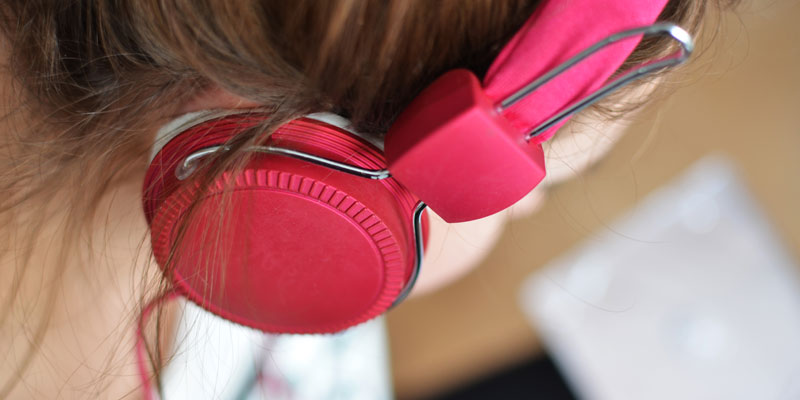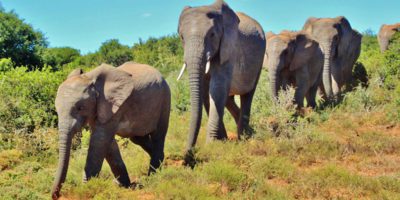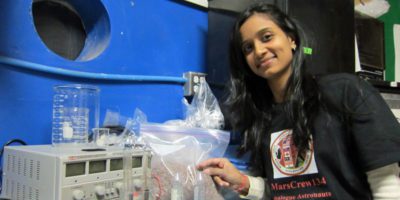Rebecca Gelding is a part time Ph.D. student based at Macquarie University in Sydney, within the ARC Centre of Excellence for Cognition and its Disorders, investigating what is going on in the brain when we hear music in our minds. Using a technique called Magnetoencephalography (MEG), she measures people’s brain activity whilst they complete a task that requires them to imagine music. If we can better understand the links between imagining sounds and hearing them, it may be able to help those with hearing impairments.
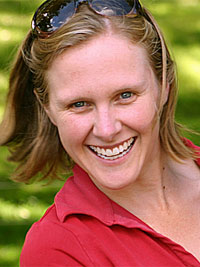
As part of National Science Week 2016, King George Square in Brisbane’s Central Business District will host the first Australian Soapbox Science event on Saturday 20th August 2016 from 1pm – 4pm. Rebecca will be speaking on: “What is going on in the brain when people are imagining music?”
From a career in finance to a Ph.D. studying the brain, via a cut-price gym membership
I enrolled in a Bachelor of Science (Advanced Maths) at University of Sydney, mainly because it allowed me to study all my favourite subjects: maths, music and psychology. I even did an honours project looking at a mathematical modelling of the brain.
When my honours was done and I was faced with the decision to pursue a Ph.D. or leave academia I thought: Don’t I need to get a ‘real’ job? I couldn’t just keep studying and learning all my life, surely? So I left, and went to work in finance for several years … which might have been the end of my science story – had it not been for half price gym membership…
I was working near Macquarie University (MQ) at a finance company, and my husband and I joined the recently renovated university gym; but he was an MQ alumni and got half price membership, whereas I was having to pay double as a member of the public. So I literally sat down with the university course handbook to see what I could study part time that would be interesting but relevant (as my work at the time would pay for any “professional development”).
The Master of Education caught my eye, as I was involved in a lot of workplace training, so I enrolled in 2008. With my work paying tuition costs, I could now enjoy my half price gym membership!
Once my kids came along, and I had finished my Masters, the prospect of returning to the finance industry seemed pointless. I realised that life was too short to spend time doing something you aren’t passionate about. So in late 2012, with a three year old and an 18 month old, and with the encouragement of several lecturers and supervisors from my recently completed Master of Education from Macquarie, I started to consider doing a Ph.D. part time.
If you don’t ask, you don’t get
Since I had kids already, and had always been interested in the brain, I had a look at what research was being done in kids’ brains at Macquarie. The search lead me to a meeting with my (now) supervisor about potential topics. I just 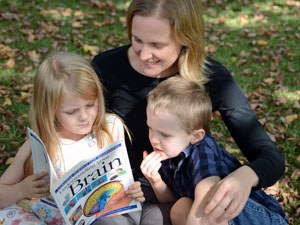
So here I am three and a half years later, with two experiments done and one more to go – almost on the home stretch but with eyes awakened to so many new horizons that I never knew existed!
Multi-skilled and multi-tasking
One of the biggest surprises I found when starting this Ph.D. was the variety of skills I needed; like reading, writing, brainstorming, coding, administration, testing participants, learning new techniques (in my case,
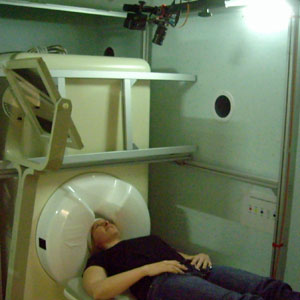
Magnetoencephalography [MEG] acquisition and analysis), time management, project management, meetings, presentations to a variety of audiences, networking, grant applications, travel booking, teaching… No two days are ever the same.
Being part time just adds more variety into the mix, and means that my hours have to be flexible. So this year I work 9.30am – 2.30pm three days a week, and then 8pm – 10pm probably five nights a week. That means I am able to spend time with my family in the afternoons, and on weekends. Even when I’m not at my desk, though, there is still plenty of downtime in my day where I can be thinking through issues or ideas, and planning – which I find makes my work time more productive.
I’ve had to learn to go with the flow; some weeks with deadlines will require more hours, other weeks I’ll have more family responsibilities, but one thing is for sure – life is always interesting!
Better understanding the links between imagining sounds and actually hearing them
I’m interested in what is going on in the brain when people are imagining music. The reason I’m interested in this is that I think that if we can better understand the links between imagining sounds and hearing them, it may be able to help those with hearing impairments or adult recipients of cochlear implants who are able to imagine music, but can’t hear it or understand it as well as they’d like to. So I’ll be talking about a task we’ve designed which gets people to imagine tones up / down the scale.
Surprisingly, we found that doing well on the task had more to do with individual abilities of mental control and auditory vividness than musical training; a non-musician outperformed a professional jazz musician! I’ve also been measuring people’s brain activity using MEG whilst completing the task, so I’ll also be sharing some of these results too.
Finally, I can never really talk about imagining music with people without the topic of earworms (songs stuck in your head) coming up – so I’ll try to incorporate some of the great current research happening around the world in this field too; including how to get rid of them!
I think I’ll be trying to practice my talk on anyone and everyone who will listen – like any unsuspecting stranger that asks me politely what I do. I might even be able to get my mum to understand a little better what I’m studying! I’m also trying to think of some cool props I can use to engage the crowd.
Why it’s so important to take our science to the public
Firstly, we have an obligation to the general public to do good work with the taxpayer dollar that funds us – and to communicate the results of that good work. Whilst great outreach is already achieved through different science education programmes, we can’t rely on the public to come to us – we need to take our science to them: on the streets if necessary!
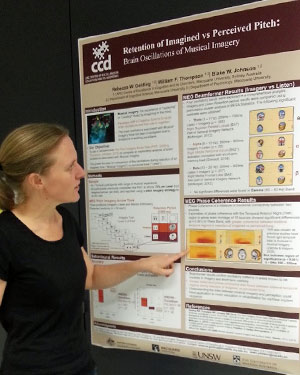
Splits in gender still vary depending on subject
I’m really fortunate to work in a Cognitive Science department that is fairly evenly split between the genders – with very high representation of inspiring women in leadership within the department, the ARC Centre of Cognition and its Disorders (CCD) that I am part of, as well as the Faculty of Human Sciences.
It was actually one of the most notable differences I found when beginning my Ph.D. compared with studying my undergraduate degree in Mathematics, where I did my honours project in Department of Theoretical Physics (University of Sydney). There were only a handful of other female students (we were very much the minority) and there were even fewer female lectures or professors. Though what they lacked in quantity they made up for in quality.
Seek out a fantastic supervisor and a subject you love
The best advice I’ve been given probably came from my supervisor: “Let’s hit the ground running”. I was able to gain real momentum from the very beginning, by simply planning out what it was that needed to be done and then getting on and doing it; and when things ever got overwhelming, I’d just take it one day at a time.
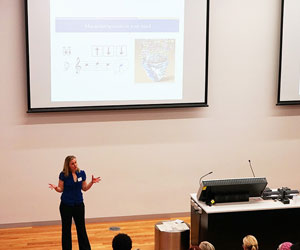
The world beckons as well as my soapbox
Through the generous support of the Macquarie University Post Graduate Research Fund and the Centre of Cognition and its Disorders, I’m fortunate to have the opportunity to be heading overseas to communicate my research this June / July. I’ll be visiting England, Germany, Switzerland and United States, attending two conferences (The Organization of Human Brain Mapping and International Conference on Music Perception and Cognition) and visiting several amazing researchers at various labs around the world.
So after sharing my research with so many in the international scientific community, I’ll be excited to be speaking about it with the general public in August at Soapbox Science Brisbane! The remainder of the year will hopefully involve testing for my final MEG experiment involving imaging rhythms, before spending 2017 analysing and writing up the completed PhD. Sounds do-able doesn’t it? Hmmm … might just take it one day at a time…
https://www.cogsci.mq.edu.au/members/profile.php?memberID=811
https://twitter.com/rebeccagelding
https://musiconthemindblog.wordpress.com/

